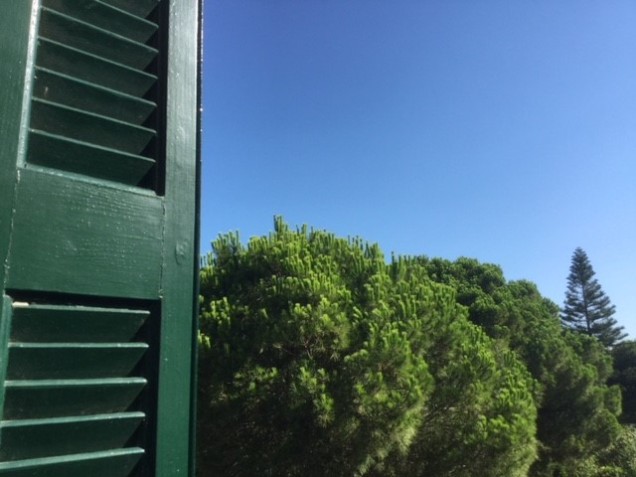
If you are new to this group, welcome – it’s a reading of Shakespeare’s great play about a man who wrecks his own life and lives with the consequences. And life in various ways mends itself and comes back to him.
Look up The Winter’s Tale in the search box to get the feel of how we’re reading and what’s been happening. Find a text of the play here.
Last time, we were reading the moment when Hermione takes on the challenge of persuading Polixenes to stay longer. We’re in Act 1 Scene 2. Leontes has failed to persuade Polixenes to stay a little longer and has asked his Queen, Hermione, to try to win him. This she has done, by entreaty, gentle word play, perhaps a little flirting. We’re going to have to decide how much flirting…And we have to remember Leontes, standing near but not in the conversation, watching it unfold.
As the not-so-State-visit of the Unmentionable has unfolded before our eyes this last few days, I couldn’t help remember the play, these moments of strange cross-over between public and state affairs and the private. Look at photos of various bits of hand-holding.
But, back to the text! Let’s just read the next section:
POLIXENES
Your guest, then, madam:
To be your prisoner should import offending;
Which is for me less easy to commit
Than you to punish.HERMIONE
Not your gaoler, then,
But your kind hostess. Come, I’ll question you
Of my lord’s tricks and yours when you were boys:
You were pretty lordings then?POLIXENES
We were, fair queen,
Two lads that thought there was no more behind
But such a day to-morrow as to-day,
And to be boy eternal.HERMIONE
Was not my lord
The verier wag o’ the two?POLIXENES
We were as twinn’d lambs that did frisk i’ the sun,
And bleat the one at the other: what we changed
Was innocence for innocence; we knew not
The doctrine of ill-doing, nor dream’d
That any did. Had we pursued that life,
And our weak spirits ne’er been higher rear’d
With stronger blood, we should have answer’d heaven
Boldly ‘not guilty;’ the imposition clear’d
Hereditary ours.
HERMIONEBy this we gather
You have tripp’d since.
POLIXENESO my most sacred lady!
Temptations have since then been born to’s; for
In those unfledged days was my wife a girl;
Your precious self had then not cross’d the eyes
Of my young play-fellow.
HERMIONEGrace to boot!
Of this make no conclusion, lest you say
Your queen and I are devils: yet go on;
The offences we have made you do we’ll answer,
If you first sinn’d with us and that with us
You did continue fault and that you slipp’d not
With any but with us.
LEONTESIs he won yet?
HERMIONEHe’ll stay my lord.
LEONTESAt my request he would not.
A good example of thinking about how much you might read ahead in a Shared Reading session. I’m the world’s slowest reader, except where I need to speed up in order to show or experience the run of the action. That’s what I’d do here, speed up – because I want my group to know where we are heading – that terrible, childish, petulant line ‘At my request he would not.’
This is the point at which Leontes really begins to lose himself and his grip on reality.
I want the serious reality of this terrible moment live in the room before we go slowly through more verbal play from Polixenes. I want to get this moment in the room, because it sets an emotional tone and kind of background to what we are going to read. So, as in a poem, we’re reading not just a linear narrative but back and forth, up and down the ines.
A question someone asked me recently: how do you know when to glide over and not be too bothered about not understanding things and when to slow down and work at it?
Let’s read the opening again:
POLIXENES
Your guest, then, madam:
To be your prisoner should import offending;
Which is for me less easy to commit
Than you to punish.
This is a moment of slightly complex or hard to easily get language that anyone might think – what? Not sure what he’s just said. I’d glide here – the first line contains the real meaning: he’s going to stay. but just for interest, what does the next bit, which takes three lines, mean?
The word ‘import’ is an odd one here – one of the reasons an ear unfamiliar with Shakespearean language would or might be put off…but it just means, bring in, doesn’t it? Hhhm, not quite. Import as in suggest? To be a prisoner suggests you’ve committed an offence, that’s the import of it. I’m going to look the verb up in the good old Etymological Dictionary.
early 15c., “signify, show, bear or convey in meaning,” from Latin importare “bring in, convey, bring in from abroad,” from assimilated form of in- “into, in” (from PIE root *en “in”) + portare “to carry,” from PIE root *per-(2) “to lead, pass over.”
So that is why Polixenes speaks of a crime Hermione might punish: prisoner signifies offence.
And the next bit? A bit of harmless flirting, harmless wit, wordplay…
Which is for me less easy to commit
Than you to punish.
meaning – harder for me to commit a crime against you, than you to punish it.
But if you were looking for a hidden meaning (as Leontes, watching, may be – look at him! ) it might mean, I’d never do anything against you, but you could hurt me. It might mean that. Might not. We’ll have to wait and see. Is Leontes waiting to see?
Whatever it is, Hermione floats over this and turns the subject and lays down a line:
HERMIONE
Not your gaoler, then,
But your kind hostess. Come, I’ll question you
Of my lord’s tricks and yours when you were boys:
You were pretty lordings then?
She’s saying: I’m your hostess. That’s it. Nothing more. Tell me about your childhoods, your boyhood friendship.
I wonder about Leontes, what is he doing right now? What do we see on his face? – is this another ‘not a jar o’the clock behind what lady she her lord?’ – is she deliberately appeasing him? And that word ‘come’ implies a turning away – if you’ve got to be Hermione, on a stage, physical, are you moving at that point? Are yo taking Polixenes arm? Holding your hand out?
Oh dear times up, more next time.








